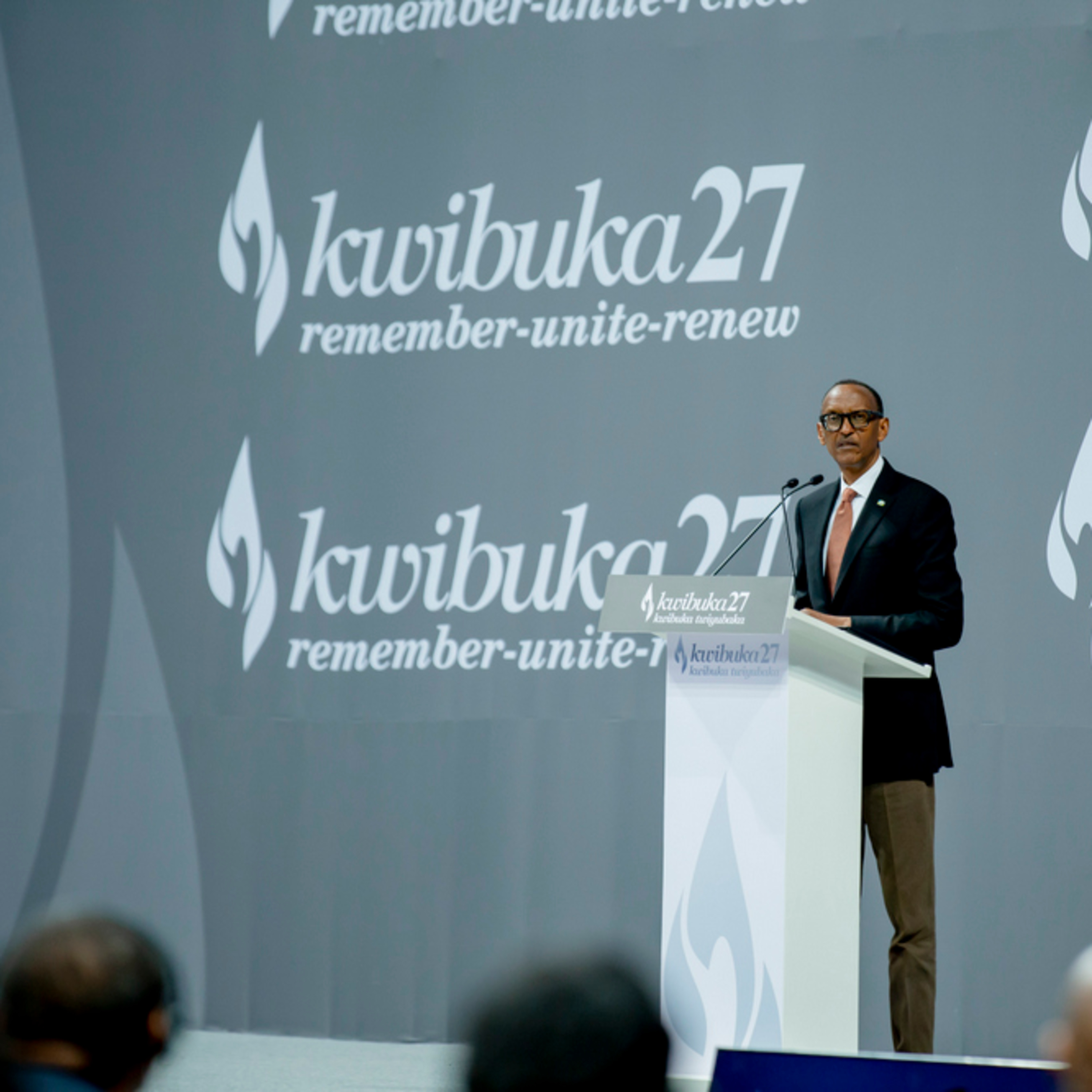

ISI YA NONE Special #Kwibuka27: Isesengura ku ijambo Perezida yavuze atangiza kwibuka ku nshuro ya 27 jenoside yakorewe abatutsi mu Rwanda
Kwibuka27: Address by President Paul Kagame
What Jean-Damascène Bizimana [Executive Secretary of the National Commission for the Fight against Genocide] has just told us, those are facts. Facts of our history, facts about what happened, and the responsibilities thereof. For those deniers, if they have no shame, why should I have fear?
Today, as every year, we gather together to remember the Genocide against the Tutsi. I thank you all for taking part in this ceremony.
This may be the 27th time we have marked commemoration, but the occasion is never ordinary. There are always reminders of what is at stake. New mass graves are regularly discovered. Many perpetrators still roam free.
But we cannot allow the weight of our history to crush us.
This is also the second Kwibuka during the Covid-19 pandemic. The physical distance only adds to the emotional burden on survivors, whose quiet strength has nourished our nation’s revival. We thank you and we honour the sacrifices you have made for the sake of a better future for us all.
We also credit Rwanda’s rebirth to the fact that the larger part of Rwandans wanted to build a better nation and overcome the manipulations by the bad leaders of the past. Given the chance to live better and see things differently, our people seized it. This is an indispensable part of our strength.
As a result, even in the midst of constant pressures and distractions, Rwanda today is unquestionably more united and forward-looking than ever before. And here, I am speaking particularly about the youth, who are the vast majority of our country’s people.
That is why all efforts to divide and divert us have failed, and will continue to fail.
Kwibuka challenges us to reflect on the context of the present moment, as well as the cumulative history that has led us here.
Rwanda may not yet be wealthy or fully healthy, and we have vulnerabilities and limitations, like any country. But we also know how to deal with our problems. Rwandans are resilient, and we are full of purpose and hope.
The immensity of what has been achieved is almost miraculous. The results are attested to by Rwandans, and indeed indisputable.
First, there are the tangible signs, things that we can see and feel.
New buildings and roads. Better hospitals and health centres. Water and electricity services, where they never existed before. Visitors flocking to see Rwanda’s unique wildlife and enjoy our hospitality.
But the intangible transformations which have taken place in the hearts and minds of our people are even more important. They allow progress to be sustained from generation to generation.
Our unity and nationhood, which continues to grow. The trust we have in each other as a people, and in our leaders and institutions. Positive mindsets of creativity, accountability, and self-reliance. The satisfaction of seeing Rwanda’s story serve as an uplifting symbol of renewal, even hopefully beyond our borders. And the collective self-assurance that comes from the spirit of agaciro, which inspires everything we do.
The Rwandans of today have gained a lot, which means we have something precious to defend. This requires constant vigilance, along with a commitment to introspection and honesty.
Decades, even centuries of progress, can be wiped away in the blink of an eye. We have seen examples in different societies around the world, no matter how advanced.
I know for certain that Rwandans will always be ready to protect what we have built, without hesitation or apology.
Like every country, Rwanda has the right to use all legitimate and lawful means to counter attacks on our people — no question about it — and on the principles of our Constitution. ... https://www.youtube.com/watch?v=hbBS1J8-h6w